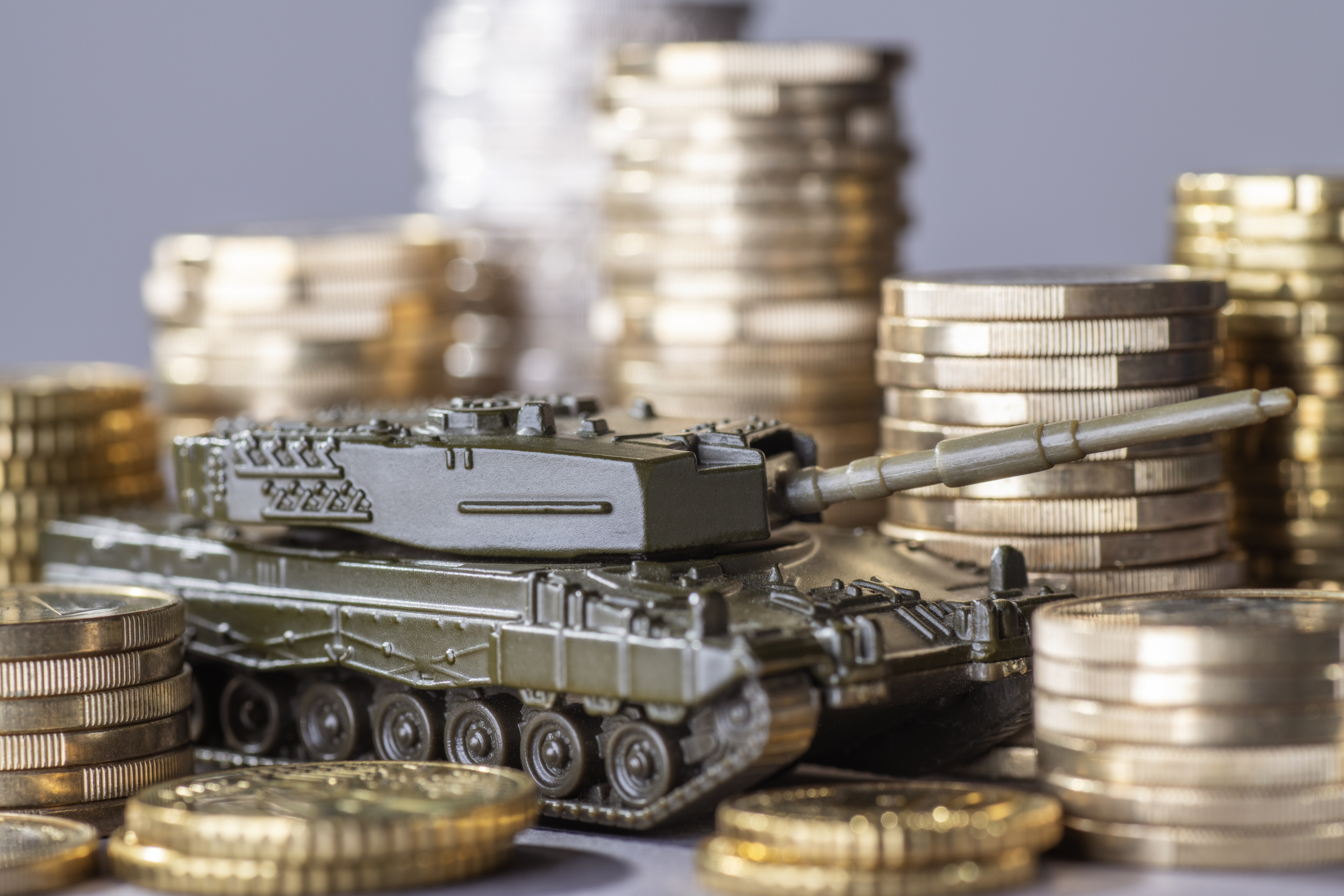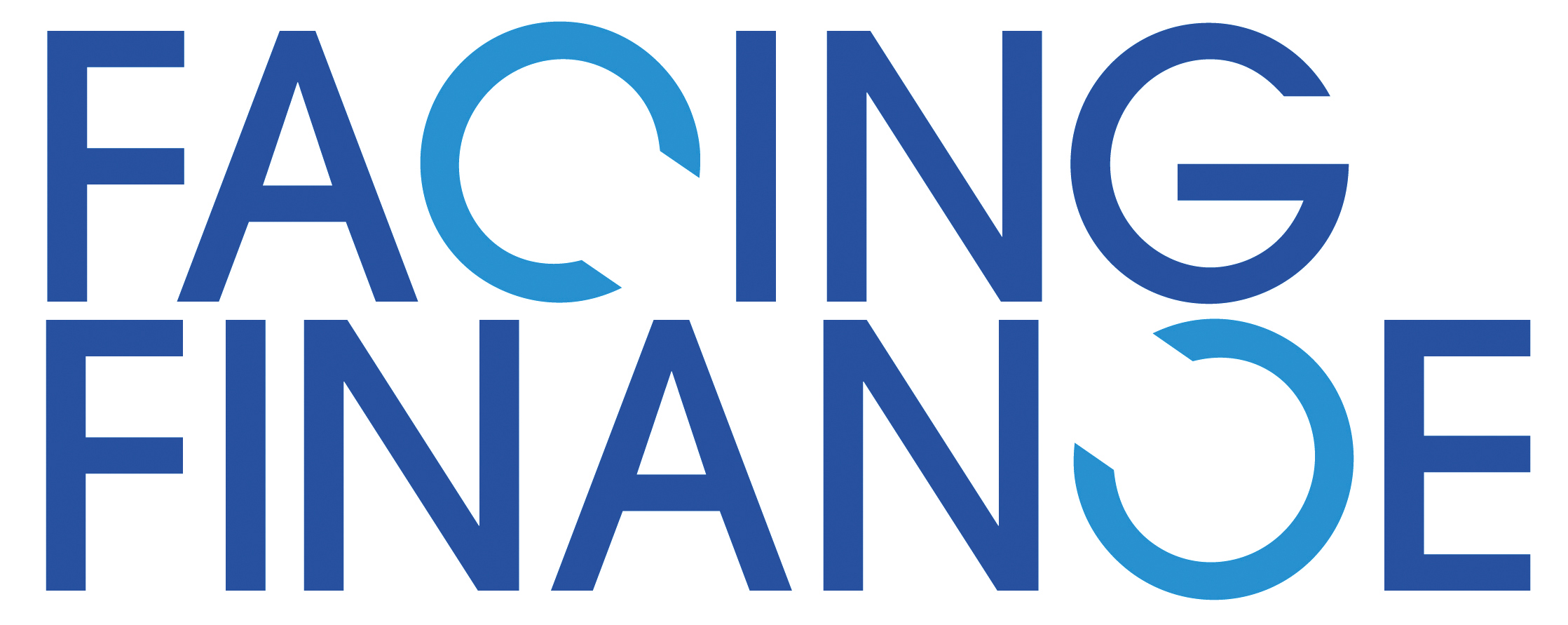
War in Ukraine
The Russian military aggression against Ukraine and the suffering it has caused has triggered an unprecedented reaction by European states. The invasion is said to have “brought war back to Europe“[1] and led to a change in the way arms exports, defense contractors and their financing are discussed. In German political and public discourse, the debate surrounding the export of arms to warring countries has become more tense, open, and lopsided.
During 2021 and the beginning of 2022, the German government rejected Ukrainian demands for arms deliveries, referring to a principle of excluding exports into war zones – even though, as research revealed, this principle has often been ignored in the past.[2] The German Chancellor did assure the will to help Ukraine’s self-defense while avoiding unilateral efforts, which international politicians criticized as “stalling”.[3] Pressure increased until in January 2023, the government agreed to supply 14 Leopard 2 and dozens of Leopard 1 tanks.[4] Even though this is not the first heavy weapons delivery, oppositional as well as governmental politicians continue to criticize the chancellor’s tardiness.[5]
This controversy and urgency illustrate and further contribute to the changing climate in which arms exports discussions take place. Even politicians of the green party, which originated from the peace movement and used to be a prominent proponent of disarmament, openly called for exports support. The political shift has extended to the business and financial sector. Financial institutions are confronted with different political demands, some of which contradict previous norms and guidelines. This case study examines how banks active in Germany changed their policies and the respective criteria guiding their financing of the armaments sector in the context of the war in Ukraine. In fact, this war could be used by governments, arms companies, and the financial industry to legitimize any arms deliveries to global war zones. One indicator for a government’s change is that the German government has terminated the arms export ban to Saudi Arabia and is once again supplying weapons.[6] This case study applies this development to the financial sector and examines how banks active in Germany changed their policies and the respective criteria guiding their financing of the armaments sector in the context of the war in Ukraine – an outstanding case in so far that the arms exports to Ukraine are currently the only ones listed in the ExitArms database that support a sovereign state’s right to self-defense against a war of aggression.
Impact on banks and their guidelines
Generally, most banks have guidelines which often exclude financing and/or investing in companies that are active in certain “controversial” sectors or violate internationally recognized standards and norms. The question of where to draw the line, especially when it comes to companies likely to be involved in wars, seems to be a particularly difficult one. The arms industry is notorious for its lack of transparency as well as its high risk of corruption and human rights violations.[7] The production of controversial weapons that harm civilians, for instance cluster munitions or antipersonnel mines, or the export of arms to repressing regimes with high risk of human rights abuses break ethical principles and violate international treaties. In addition, awareness of these problems seems to be growing, becoming increasingly important to retail investors, incentivizing banks to choose carefully who they finance.
Evaluating and comparing banks’ financing and investment guidelines in terms of their compliance with international sustainability standards against a variety of themes and sectors, the Fair Finance Guide Germany reveals yawning gaps between the commitments of different banks. Nonetheless, most banks’ guidelines do include some restrictions on financing defense contractors. The current change of the political and public sentiment is influencing banks as well and many of them are accordingly in a transitional phase of adapting their understanding of ethics and sustainability guidelines regarding the defense sector.[8]

Examples of banks’ reactions
For most banks, the question whether political decisions regarding arms exports to conflict zones should lead to weakened guidelines regarding which companies can be funded is still up for discussion. Almost all banks felt compelled to react to the current situation, but there is no consistency. While for example BayernLB, Unicredit or DZ Bank have so far not announced any intention to change their guidelines, several other banks such as NordLB, Hamburg Commercial Bank (HCOB), Deutsche Bank and Commerzbank have stated that they are willing to consider relaxing their policies.[9] The most prominent example of an actual change in policies comes from the Landesbank Baden Württemberg (LBBW).
The regional state bank LBBW moved away from its previous policy of only accepting armaments delivered to EU or NATO member states in their finance portfolios. Mid-2022, a LBBW spokesperson announced that this rule was lifted as the bank broadened its scope:[10] Now, financing of all armaments for which a delivery permit by the respective German federal office is issued is acceptable for the bank, excluding “countries with a fragile state” or those that “seriously breach human rights”.[11] At the same time, LBBW tightened its previous five percent limit guideline on biological and chemical weapons to zero.[12]
The banks Unicredit and DZ Bank both stated that changes due to the Ukraine crisis are currently not foreseen.[13] It must be added, however, that both Unicredit’s and DZ Bank’s guidelines are currently already evaluated as “very weak” by the Fair Finance Guide.[14] Additionally, these positions may generally still be subject to change, given that no commitments have been made to suggest otherwise.[15]
A spokesperson of Deutsche Bank - Germany’s largest bank in terms of assets – referred to the uncertainty of effects caused by the “change of paradigms in security policy” in response to the war in Ukraine. He further stated that the geopolitical situation of arms importing countries will be taken into account when assessing arms-related transactions as “case-by-case considerations”[16]. The bank has not committed to a new guideline yet and stated that when it comes to conflict areas, cases of doubt will be rejected.[17]
As another example, in its updated armaments policy in June 2022, Commerzbank added an explicit clarification about its support for the German armed forces and their allies, for which the bank continues to finance arms manufacturers. In its previous policies, the bank has also mentioned “self-defence as an inherent right of states”[18]. However, the reinforcement of supporting armed forces was newly added, a formulation that hints at a relaxing tendency regarding the war in Ukraine. Even though the Commerzbank’s guideline excludes financing exports into areas of conflict and tension, the CEO reportedly uttered a positive stance in March 2022: “It is clear that there will now be more investments in the defense industry here in Germany, and they’re all our clients (…) and I’m sure they will talk to us for further investments.”[19]
A very prominent example with an explicit policy change outside of Germany’s borders is the Swedish financial group SEB, which announced in February 2022 it would again permit shares of defense companies in some of its funds.[20] The SEB therefore broke with a policy they had adopted only a year earlier, when it stopped defense investments. The bank referred to changed positions of their customers due to the geopolitical situation.[21]
Criticism & Outlook
Should more banks follow LBBW’s example, already weak guidelines would further be diluted. Most of the banks mentioned above have rather weak requirements for the arms industry as is.[22] More than ever, this calls for scrutiny in evaluating a bank’s claim to sustainability and monitoring of the respective application.
Investigating past exports shows that the LBBW’s guideline to abide by the German government’s issue permits will not prevent the bank from funding human rights abuses. The list of countries for which Germany is and has been a supplier country includes several states that are repeatedly criticized regarding human rights violations – including Egypt, Qatar, Saudi-Arabia, Turkey, and United Arab Emirates.[23]
Egypt for instance is one of the highest ranked countries regarding the risk of government corruption in the defense sector and is involved in armed conflicts, in which its military reportedly committed human rights violations.[24] Secondly, Qatar delivered arms to Libya, despite a UN embargo due to systematic human rights violations, in the same period in which Qatar received armaments by Germany.[25] Thirdly, Saudi-Arabia in the last years has heavily bombed its neighboring state Yemen, according to the UN the "worst humanitarian crisis in the world" at that time. [26] After a short ban on arms exports, Germany is again delivering weapons to Saudi Arabia.[27] With their continued support - including exports of military aircrafts and guided bombs -, European defense companies have become complicit in Saudi Arabia´s human rights violations and war crimes.[28]
These examples show how export decisions by the German government do not serve as a viable exclusion criterion when it comes to human rights violations. This needs to be considered by banks striving for sustainability, accountability, and transparency.
Similarly, the criterion of being a member state to NATO neither serves to prevent human rights abuses. The case of the member Turkey underlines that differentiation among groups of states is necessary. Turkey is directly involved in several conflicts, for example as one party to the war against Kurdish forces, that continues as a limited war of autonomy since 1978, during which 586 people were killed in 2021.[29] Moreover, Turkey has a history of incursions into Northern Syria and occupations of the region, gravely attacking and violating the human rights of the Kurdish population.[30] Already in 2019, the year in which Germany delivered military components and engines to Turkey, Amnesty International published evidence of Turkish grave human rights violations and war crimes in Northern Syria.[31] Financial institutions that generally tolerate arms exports into NATO countries, such as Commerzbank or DZ Bank, need to consider human rights violations committed by these states.
In several regards, the current war in Ukraine sparked an unprecedented reaction by different actors, for which the consequences cannot be foreseen. Relaxations of the banks’ ethical and sustainability guidelines might turn out to be a slippery slope. Softening the guidelines could function as a gateway to generally facilitating the funding of arms exporters and breaking established ethical standards, for example financing defense companies that violate international law.
The current situation similarly interacts with the overall problem of lacking use of proceeds: Banks often exclude the financing of certain business activities, but not the companies that are active in these activities. In many cases, loans support general business purposes, and thus the exact use of the money remains unknown.[32] In this regard, funds flowing to a company that exports civil goods and weapons, could be intended for the former but still be used for the latter. Facing Finance hence calls for earmarking of loans to defense companies as well as for a thorough monitoring of corporations’ activities and their transparency.[33] As both the arms industry and the financial sector exhibit insufficient transparency, independent monitoring is crucial to ensure a stronger implementation of the actors’ commitment to human rights as number one priority.
Sources
Picture 1: Royalty Free https://www.dreamstime.com/about-stock-image-licenses
Picture 2: Bank Notes 6932227 © Sergey Sundikov | Dreamstime.com
[1] https://www.eeas.europa.eu/delegations/mongolia/war-aggression-against-ukraine-and-its-implications_en?s=171
[2] https://www.dw.com/en/fact-check-does-germany-send-weapons-to-crisis-regions/a-60701220
[3] https://www.dw.com/en/german-politicians-criticize-stalling-on-tanks-to-ukraine/a-64474921
[4] https://www.sueddeutsche.de/politik/bundestag-leopard-2-panzer-abrams-panzer-olaf-scholz-1.5738726 https://www.sueddeutsche.de/politik/bundestag-leopard-2-panzer-abrams-panzer-olaf-scholz-1.5738726
[5] https://www.tagesschau.de/inland/innenpolitik/panzerlieferungen-ukraine-101.html
[6] https://www.dw.com/en/german-government-approves-arms-exports-to-saudi-arabia-reports/a-63288334
[7] https://www.fairfinanceguide.de/media/497927/ffg-policy-assessment-methodology-2021.pdf p. 116
[8] https://finanzbusiness.de/nachrichten/banken/article14891698.ece
[9] https://finanzbusiness.de/nachrichten/banken/article14144535.ece
[10] https://www.stuttgarter-nachrichten.de/inhalt.ukraine-krieg-lbbw-will-waffenexporte-wieder-finanzieren.d73270e2-008a-46f4-9739-ebfcb9803ca3.html
[11] https://www.lbbw.de/konzern/nachhaltigkeit/2022/lbbw-sustainability-practice-2022_ae45jn91ci_m.pdf
[12] https://www.lbbw.de/konzern/nachhaltigkeit/2022/lbbw_nachhaltigkeitsregelungen_899tk8tr8_m.pdf
[13] https://finanzbusiness.de/nachrichten/banken/article14867796.ece
[14] https://www.fairfinanceguide.de/ffg-d/themen/ruestung/
[15] https://finanzbusiness.de/nachrichten/banken/article14148533.ece
[16] https://www.businessinsider.de/wirtschaft/heckler-koch-rheinmetall-co-deutsche-banken-wollen-ruestungskonzernen-nach-russlands-ueberfall-auf-ukraine-besseren-zugang-zu-geld-verschaffen-e/
[17] https://www.businessinsider.de/wirtschaft/heckler-koch-rheinmetall-co-deutsche-banken-wollen-ruestungskonzernen-nach-russlands-ueberfall-auf-ukraine-besseren-zugang-zu-geld-verschaffen-e/
[18]https://www.commerzbank.com/media/nachhaltigkeit/ii__positionen___richtlinien_/Commerzbank_ESG_Framework.pdf
[19] https://www.bloomberg.com/news/articles/2022-03-03/banks-change-tack-on-weapons-finance-as-defense-spending-soars
[20] https://www.wsj.com/livecoverage/russia-ukraine-latest-news-2022-03-02/card/esg-rules-bend-with-war-seb-says-it-is-ok-to-invest-in-defense-stocks-again-iPvqQL3PW4Kr6UcuGDuj
[21] https://sebgroup.lu/private/information-for-investors/news/seb-investment-management-updates-the-sustainability-policy-for-investments-in-the-defence-industry
[22] https://www.fairfinanceguide.de/ffg-d/themen/ruestung/
[23] https://exitarms.org/filter?f%5B0%5D=supplier_string%3AGermany&search_api_fulltext=&page=1
[24] https://exitarms.org/delivery/279-rheinmetall-egypt
[25] https://exitarms.org/delivery/1253-knds-qatar
[26] https://exitarms.org/delivery/1485-hensoldt-saudi-arabia
[27] Report: Germany OKs arms sales to Saudi Arabia – DW – 09/29/2022
[28] https://sites.tufts.edu/reinventingpeace/2019/03/19/who-is-arming-the-yemen-war-an-update/
[29] https://exitarms.org/delivery/1763-ims-industrial-marine-services-gmbh-co-kg-turkey https://hiik.de/konfliktbarometer/aktuelle-ausgabe/
[30] https://www.hrw.org/news/2022/08/17/questions-and-answers-turkeys-threatened-incursion-northern-syria#Q3
[31] https://www.amnesty.ch/de/laender/naher-osten-nordafrika/syrien/dok/2019/erdrueckende-beweise-fuer-kriegsverbrechen-durch-tuerkische-streitkraefte-und-verbuendete-milizen
[32] https://finanzbusiness.de/nachrichten/banken/article14891698.ece
[33] https://finanzbusiness.de/nachrichten/banken/article14891698.ece
